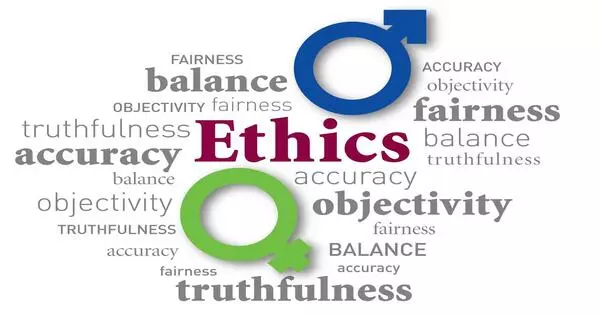Media ethics are the principles and standards of conduct that guide media organizations and professionals in their work. These ethical guidelines help ensure that journalists and other media professionals uphold their responsibility to accurately and truthfully inform the public while also respecting the privacy, dignity, and rights of the individuals and groups they cover.
Media ethics is the branch of ethics that deals with the specific ethical principles and standards of media, such as broadcast media, film, theater, the arts, print media, and the internet. From war journalism to Benetton ad campaigns, the field covers a wide range of diverse and highly contentious topics.
Values such as universal respect for life, the rule of law, and legality are promoted and defended by media ethics. Media Ethics defines and addresses ethical issues concerning how the media should use text and images provided by citizens. Literature on how the Internet specifically affects media ethics in journalism online is limited, complicating the idea of a universal code of media ethics.
Some key principles of media ethics include:
- Accuracy: Journalists should strive to report the facts accurately and fairly, avoiding errors, omissions, and distortions.
- Objectivity: Journalists should strive to present the news objectively, without taking sides or showing bias.
- Fairness: Journalists should strive to treat all individuals and groups fairly, avoiding stereotypes and discrimination.
- Privacy: Journalists should respect the privacy of individuals and avoid intrusive reporting tactics.
- Transparency: Journalists should be transparent about their sources, methods, and motives for reporting a particular story.
- Independence: Journalists should be independent of outside influences and pressures, such as advertisers, government officials, or special interest groups.
- Accountability: Journalists should be accountable for their work and willing to correct errors and clarify misleading information.
Importance
Media ethics are important because they help to ensure that the media is fulfilling its role as a watchdog of society and a provider of information to the public. By adhering to ethical principles, media professionals can maintain the trust of their audiences and uphold the integrity of their profession.
Adhering to these principles is important for maintaining the integrity and credibility of media organizations and professionals. However, media ethics can be complex and challenging, particularly in the fast-paced and competitive world of modern media. It is important for media professionals to regularly reflect on and evaluate their ethical practices in order to uphold these principles and maintain public trust.
















